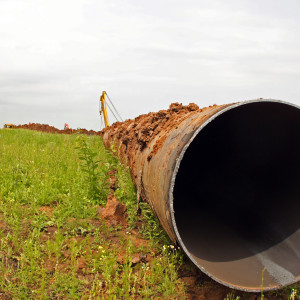As environmentalists protest the building of pipelines to transport oil and natural gas, it may not be the energy companies who are most hurt by a lack of pipeline infrastructure and an overburdened freight rail network.
A new study from the American Farm Bureau Federation shows that farmers in the Upper Midwest, where the Bakken shale has created an energy boom, lost $570 million during the 2014 harvest. According to the study, the average North Dakota corn farmer may have received $10,000 less than the traditional market rate for the crop.
The production of oil in the region has stressed the freight rail system. Farmers are left unable to ship their crops as quickly as they could before the growth in energy production. Crops have a limited shelf life, and there are capacity constraints on the rail system.
“Due to the nature of grain production and use, the industry is fairly inflexible about which freight methods it can use, so any time one of those methods is unavailable, crops are lost or cost more to transport,” said study author Elaine Kub. “This leads to more expensive food for families and less profitable incomes for farmers. Crude oil, however, can be more efficiently and affordably shipped through pipelines, and can be done without crowding already overstressed railways.”
Farm Bureau Chief Economist Bob Young sees better pipeline infrastructure as the solution. “Construction of new pipelines would certainly be a more effective way to move that product to market. It would take crude oil off the rails and, in doing so, improve the overall efficiency of the transportation system. Improved pipeline infrastructure will also help enhance American energy security for everyone.”

